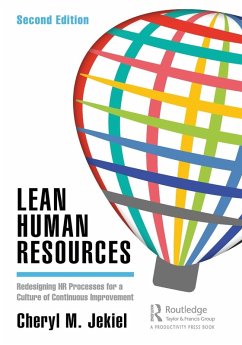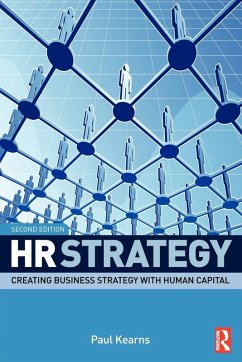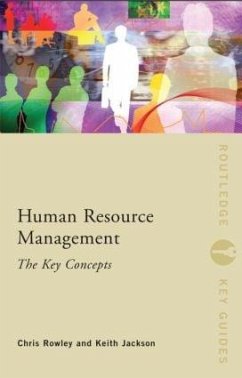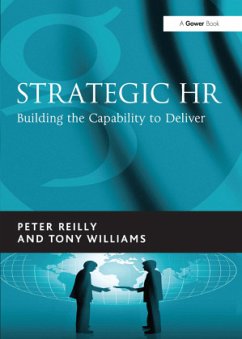
Managing People in the Hybrid Workplace
Versandkostenfrei!
Versandfertig in 6-10 Tagen
38,99 €
inkl. MwSt.
Weitere Ausgaben:

PAYBACK Punkte
19 °P sammeln!
Managing People Effectively in a Hybrid Workplace is designed to ensure that both aspiring and experienced people professionals are equipped with in-depth knowledge of how workplace structures are being disrupted by new technology and working models. It explores analytics and capability to provide evidence-based insights that can shape employee experiences, support adaptation to changing business conditions, navigate risk, drive workplace performance, harness collaboration and open up new possibilities for HR and the organisation.The book has been designed both as a text to support students st...
Managing People Effectively in a Hybrid Workplace is designed to ensure that both aspiring and experienced people professionals are equipped with in-depth knowledge of how workplace structures are being disrupted by new technology and working models. It explores analytics and capability to provide evidence-based insights that can shape employee experiences, support adaptation to changing business conditions, navigate risk, drive workplace performance, harness collaboration and open up new possibilities for HR and the organisation.
The book has been designed both as a text to support students studying HRM on university programmes and as a handbook for professionals wishing to update their knowledge in contemporary HRM. The book also supports the core and specialist knowledge and core behaviours in the CIPD Profession Map.
The book has been designed both as a text to support students studying HRM on university programmes and as a handbook for professionals wishing to update their knowledge in contemporary HRM. The book also supports the core and specialist knowledge and core behaviours in the CIPD Profession Map.














